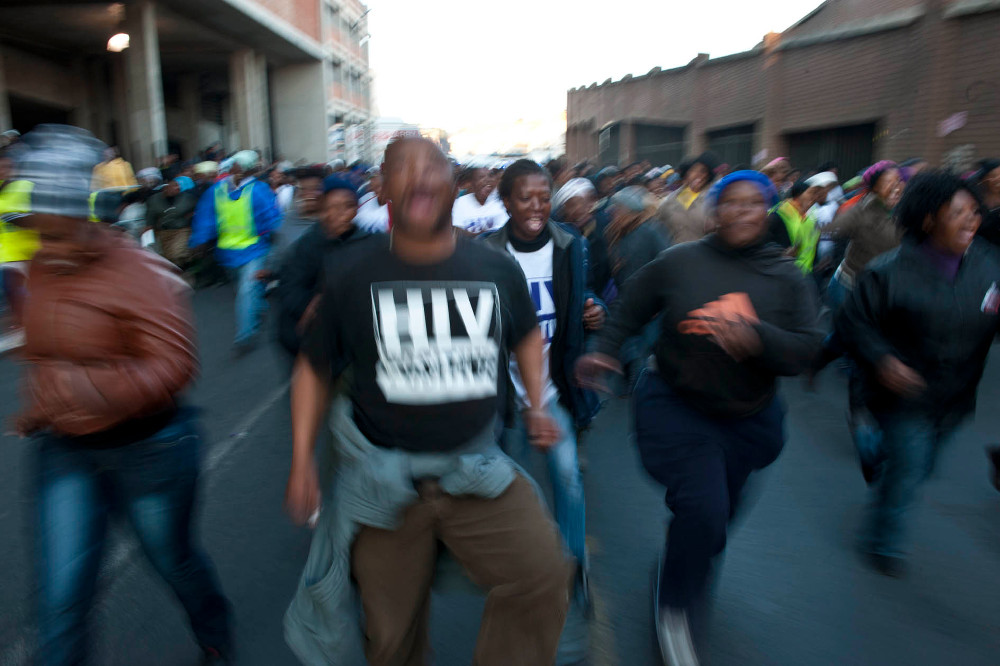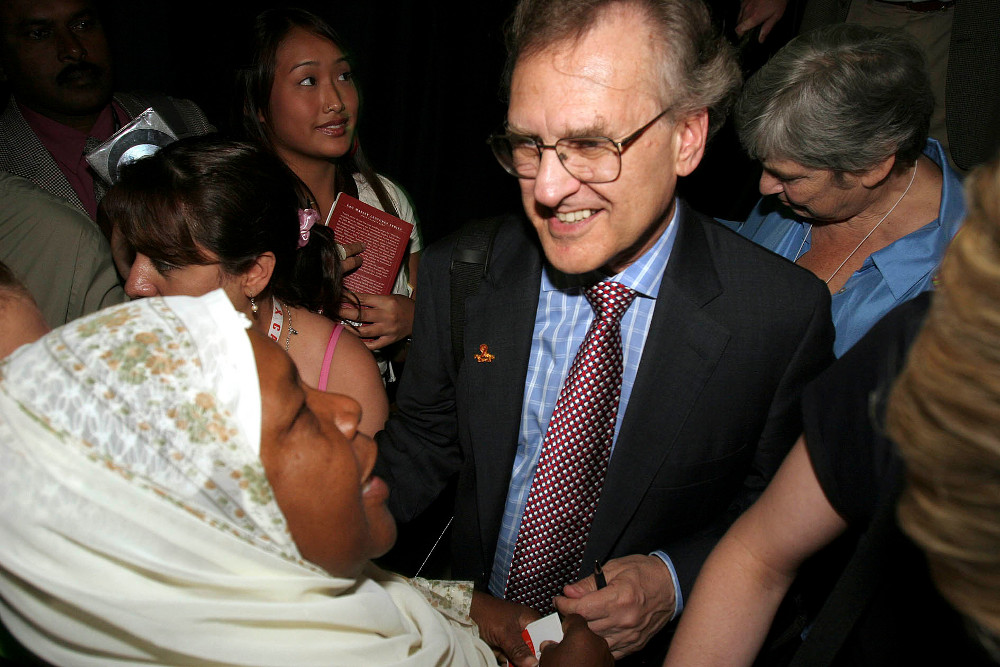The TAC applied successfully to the Constitutional Court for the state to provide antiretrovirals for free to people living with HIV and Aids
One of the world’s leading Aids activists has accused Britain of “signing a death warrant” for South Africans in need of treatment after it withdrew aid to the Treatment Action Campaign (TAC), which now faces ruin.
Stephen Lewis, a former United Nations special envoy for Aids in Africa, criticised Britain’s department for international development (DfID) over its decision to stop funding the TAC, which forced the South African government to reverse its policy of Aids denialism, saving millions of lives.
“For a donor like DfID, it’s the height of irresponsibility to cut back,” said Lewis from Canada this week.
“Frankly, it’s one thing to cut back on contributions to governments or to major international agencies, but to do such damage to struggling civil society is reckless. DfID understands that when they cut back they are signing a death warrant for a significant number of South Africans.”
Foreign donors who are pulling out should “recognise the consequences of their actions”, added Lewis, the co-founder and co-director of Aids-Free World and a former Canadian ambassador to the UN.
He was speaking via Skype at a press conference in Johannesburg, organised by the TAC, which is seeking R10-million to survive.
Britain pledged £1.6-million (about R28-million) to the TAC between 2010 and 2015.
No need
Anele Yawa, general secretary of the TAC, told reporters: “How did we get here? South Africa has attained the status of being a middle-income country. Because of that, many organisations that were supporting TAC, like Comic Relief and DfID, felt there was no need to continue supporting TAC … They were deceived to say ‘the struggle against HIV and Aids in South Africa is over’. After that, these organisations pulled out.”
But the TAC’s work remained vital, Yawa said, with more than 190 branches providing education to poor people and monitoring public health systems, for example on drugs shortages. “We want this money so we can save many lives, so we can tell people why they should always use condoms when they have sex.”

The TAC needs R10-million to survive. (Delwyn Verasamy, M&G)
Another TAC member, Mark Heywood, said the group received substantial funding from foreign donors, including the United Kingdom, Sweden and the Netherlands, during the height of the global Aids crisis but many had since directed aid elsewhere.
“South Africa is now a middle-income country, so-called,” he said, “although it is the most unequal country in the world.”
The diversion of funds has left the existence of the TAC under threat. “This year we’ve hit what you might call a fiscal cliff and we haven’t been able to find a way by traditional means to get over that cliff, and that’s what threatens us with such dire consequences,” Heywood said.
In need of treatment
More than six million people are living with HIV in South Africa, the world’s biggest caseload, Heywood noted. Some 2.5-million are said to be receiving antiretroviral drugs (ARVs), but that leaves 3.5-million in need of treatment in the next three or four years. On average, 760 people died from Aids every day in 2012, according to the Human Sciences Research Council, and there were 1 000 new HIV infections a day. More than 200 people who are HIV-positive die every day from tuberculosis.
“Although there’s been a lot of quiet in the media over the last few years about HIV – I would even say complacency – there are no grounds for complacency,” Heywood said. “We can’t let up or relax and, without strong civil society and accountability, that’s the danger. Life expectancy has gone back up by 10 years. But the message we are all trying to give you is that if you don’t keep your eye on this thing, we could go back as fast as we went forward.”
Heywood was among the TAC’s founders 16 years ago, a move prompted by the death of a “friend and comrade” and the stoning to death of a woman after she disclosed her HIV status in a township.
“It was formed in late 1998 in a climate of darkness around Aids where there was no treatment at all,” he recalled. “If you had Aids, you died of Aids. There was not to be treatment for another six years, and it only came because of the TAC’s campaign.
“We asked the question then: why are people in America beginning to live because they have drugs but we are just at the beginning of our epidemic of death? Between 1998 and 2006, 2.5-million people died from Aids in this country.”
Treatment programme
Former president Thabo Mbeki has been blamed for many of the deaths after questioning the link between HIV and Aids. The TAC went to the Constitutional Court and won a ruling in which the government was ordered to provide ARVs to prevent transmission of HIV from mothers to babies during birth. The group persuaded the government to set up what is now widely lauded as the world’s biggest treatment programme.
Lewis said: “It was a grievous and difficult time because we were losing hundreds of thousands of people unnecessarily because the ARVs were not being rolled out during the denial. It was painful and heartbreaking.

The withdrawal of aid to lobby group TAC would be ruinous, says former UN envoy Stephen Lewis. (Jorge Uzon, AFP)
“That barrier, that terrible period, was broken by the efforts of the TAC, pulling together that extraordinary grassroots mobilisation that they do so effectively and using the advocacy and the legal interventions …
“The result was to have a very significant rollout of ARVs that we now see taking place in South Africa, saving literally millions of lives. There is no other nongovernmental organisation in African that can lay a claim to actually saving millions of lives. It’s an extraordinary achievement.”
The TAC commands support across the country. In a video message to Tuesday’s press conference, retired Archbishop Emeritus Desmond Tutu said: “HIV and Aids brought out the best and worst in us. Political paralysis caused delay and confusion. Death blighted the land. But citizen activism, led by the TAC in particular, restored hope and dignity. The actions of the TAC were a vindication of our wonderful Constitution.”
‘Aids is not over’
He warned: “But my message to you is that Aids is not over. Thousands still die and are newly infected. Aids is not over while one person still needs ARV medicines or dies of tuberculosis.”
A DfID spokesperson said: “The TAC has done important advocacy work for people living with HIV, but the ending of UK support will not reduce South Africans’ access to treatment.
“Britain continues to be a leading funder of HIV-Aids treatment across the globe, including providing funding to the Global Fund, which will deliver antiretroviral therapy for 750 000 people living with HIV.
“South Africa has made enormous economic progress over the past two decades and it is right that our relationship had changed from one of aid to one of mutual co-operation and trade.” – © Guardian News & Media 2014